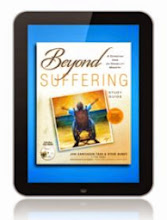The Denver Post called him "the moralist of the past American century," and The
New York Times extolled his "fierce belief in man's responsibility to his fellow
man—and [in] the self-destruction that followed on his betrayal of that
responsibility."
Yet, he struggled with the acceptance of his son.
The article is excellent reading. It is fair to Miller, I felt, yet still wonders at the decisions he made about his son and the relationship he had with his son. Clearly we are looking at the situation through 2007 eyes which are very different from those of the 60's and 70's. We must hedge in casting judgement at Miller's decisions, at least some of them, which reflected the recommendations of professionals at the time. Yet as the article tells, Daniel's mother, was qouted as saying about her visits to Southbury Training School,
Inge said, "'You know, I go in there and it's like a Hieronymus Bosch painting.'
That was the image she gave."
This is a good description of the institutions at the time.
God bless the older couple who took Daniel under their arms and loved and supported him. Apparently he now has a wing built onto their home where he lives.
The article ends with the following
Some wonder why Arthur Miller, with all his wealth, waited until death to share
it with his son. Had he done so sooner, Daniel could have afforded private care
and a good education. But those who know Daniel say that this is not how he
would feel. "He doesn't have a bitter bone in his body," says Bowen. The
important part of the story, she says, is that Danny transcended his father's
failures: "He's made a life for himself; he is deeply valued and very, very
loved. What a loss for Arthur Miller that he couldn't see how extraordinary his
son is." It was a loss that Arthur Miller may have understood better than he let
on. "A character," he wrote in Timebends, "is defined by the kinds of challenges
he cannot walk away from. And by those he has walked away from that cause him
remorse." (emphasis added)
Daniel, who "suffers" from down's syndrome as the story relates, "doesn't have a bitter bone in his body...he is deeply valued and very, very loved." How very sad for Arthur Miller. The lost relationship, the communication of no value to Daniel. God bless Daniel for his heart of forgiveness, and apparently irrepressible love for his father. As the article relates, who knows what plays were not written by a man the article states could be the greatest American playwright of the last 100 years. What great good he might have done in his own life, the life of his son and the life of his family. The article also gave me a new appreciation of Daniel Day-Lewis (I hated him in Gangs of New York, or I should say his excellent acting made me hate him!), who married into the Miller family and as the article relates is the "most compassionate about Daniel. He always visited him."
The Arthur Miller family is a famous family in America, but they are just another family in Daniel (their son's) mind. A family who he loves although he lives with a couple who loved him for who he was. A family like many families whose patriarch feared down's syndrome, probably would have aborted the child had the option been provided to the father. A family probably coming to grips with their legacy, informed, yet misinformed.
Why is it that we look back on situations such as the one with Daniel Miller, the son of Arthur Miller we look back with regret for what might have been. We judge Arthur Miller for not being a father to his son because his son had down's syndrome. We praise the family who came alongside of Daniel and took him in. But I suspect the Vanity Fairs of the world will also support abortion of persons like Daniel. They will blindly talk about choice, or those who "suffer" with down's syndrome, not knowing about what they speak. People who know other people who have down's syndrome tend to like them, tend to think they are nice people, tend to think they are loving people, tend to think they are friendly people. But in the future we may never know this because of our efforts to wipe out people with down's syndrome.
The article ends once again with the statement, "A character," he (Arthur Miller) wrote in Timebends, "is defined by the kinds of challenges he cannot walk away from. And by those he has walked away from that cause him remorse." Will the Christian Church walk away from the challenge of down's syndrome, the challenge of disability or with integrity will we say that we cannot walk away? If Arthur Miller committed a "crime" in his relationship with his son, it was a crime of reflecting society. Perhaps he went where the rest of society is going now. What is Vanity Fair's response for his taking this path? It is probably our response. It is lamentation, shaking our heads in sadness, and perhaps judgement. I doubt Mr. Miller had any notion that his relationship with his son would be the subject of a Vanity Fair article, or discussed by an obscure Christian blogger.
It seems that Daniel Miller was born and Arthur Miller saw down's syndrome not Daniel Miller. This should be a warning to me, a warning to all of us, lest we make the same error.May Arthur Miller's name forever be linked with the term down's syndrome and the name Daniel Miller.
In our world today, Daniel Miller is anticipated. Daniel Miller is conceived, Eighty percent of Daniel Millers will be aborted. Down's syndrome was the challenge Arthur Miller walked away from, hopefully with remorse. Our society is running headlong toward the elimination of people with down's syndrome.
Lamentation, sadness and judgement will be the response of those in the future to what we are doing to people with down's syndrome now.
McNair











4 comments:
What a thoughtful post. Thank you for it.
Thanks for linking to this article, and for your fine commentary on it. After reading the article, I was sad for Arthur Miller's life and choices but glad that things have changed so much for the better in the last six decades. It really feels like a different world than the environment my son experiences now, with access to early intervention and therapists and Down syndrome playgroups and awareness centers and whatnot.
When Arthur Miller's son, Daniel, was born with Down's Syndrome - although it was decades ago - Mr. Miller's perception of how society might look at him possibly contributed to his refusing to aknowledge and accept his son's disability. Apparently, over the last several decades, when it comes to children being born with disabilities, things have not radically changed. For many people, their primary goal is to live in a world that only allows perfection, and when life throws them a curve ball, it's easier to dodge and deny it than to face it head on. While it appears to the person that their life has changed forever, an initial instinct is to focus on the negative instead of the moments of unexpected joy that will take place because of this unexpected "gift."
I have a 24 year old niece who has down syndrome. I cannot express the joy she has brought to our family. Because my niece can see beauty in the little things that I tend to overlook, I often wonder how much I would have missed out on had she never been born. Although my niece may have been born with a disability, she is definitely not a disabled Christian, as the love of Christ shines through her life.
It's a shame that during Arthur Miller's lifetime he chose to ignore the blessing he had been given, and thank goodness for the family who took in Daniel as their own because they received eternal riches way beyond the monetary riches that Arthur Miller earned during his lifetime.
I agree with not only the substance of the Vanity Fair article, but also with the comments which follow on this blog. I was born with JRA (Juvenile Rheumatoid Arthritis), and had to have my hips, knees, and shoulders replaced with artificial joints before the end of my youth. God knows I may be crippled or dead before I turn my next birthday (though it hasn't happened yet). I am a teacher now, and I am so thankful that my parents never gave up on me, or even as bad or worse, had decided to abort me (although my rheumatism only became apparent at age 12). Daniel, I love you, and all of those children like Daniel: I love you as well.
Post a Comment